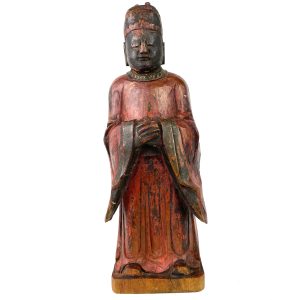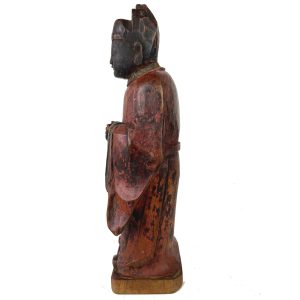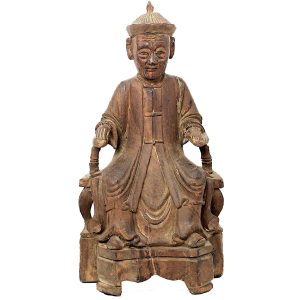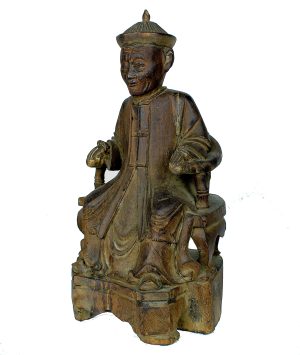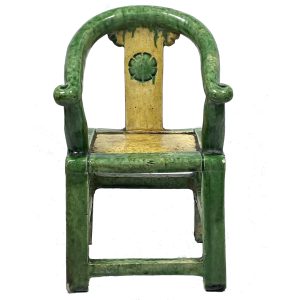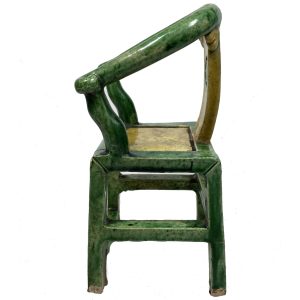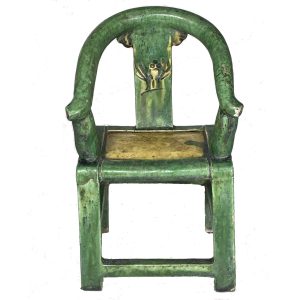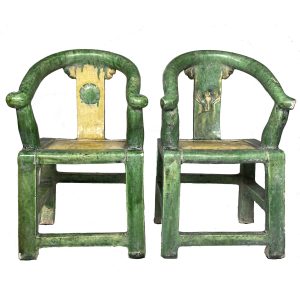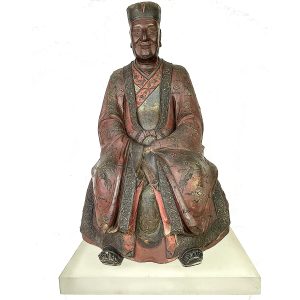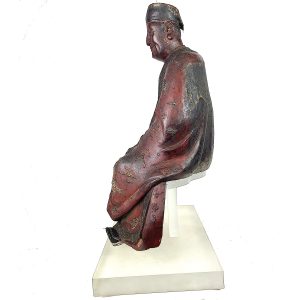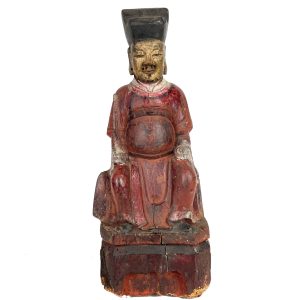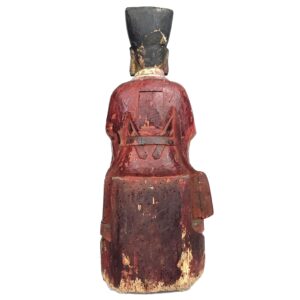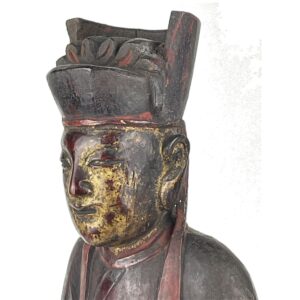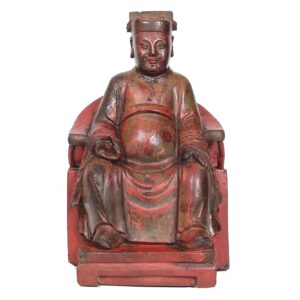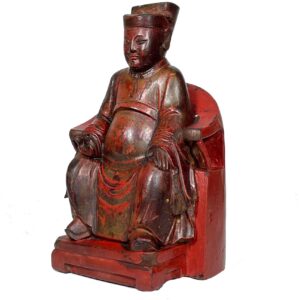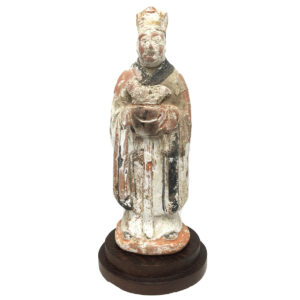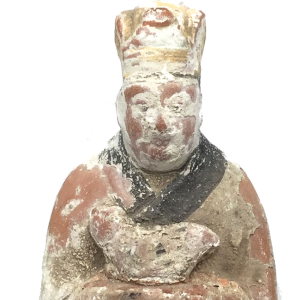-
Sale!


$425.00 Original price was: $425.00.$325.00Current price is: $325.00.
Ht: 8.25″ W: 3″ D: 2.125″ | FREE SHIPPING IN CONTINENTAL US
Ancestor figure portrayed as a civilian official standing on a rectangular base with hands together wearing a long civil official’s robe that extends to his shoes.
-
Sale!


$695.00 Original price was: $695.00.$595.00Current price is: $595.00.
H: 12.75” W: 6.625” D: 5.75” | FREE SHIPPING within Continental u.s.
Masterfully carved ancestor mandarin official on horseshoe chair in the round with cabriole legs, considered a “marker of high status, finely dressed in long Mandarin coat and pointed rattan hat. Benevolent face was homage to a revered family member. It is one of our favorite ancestor figures.
-
Sale!


$685.00 Original price was: $685.00.$395.00Current price is: $395.00.
H: 7.375″ W: 4.375″ D: 3.75″ | FREE SHIPPING WITHIN CONTINENTAL U.S.!
Horseshoe chairs were considered a sign of rank used by officials and often ancestral figures were portrayed sitting in them to reflect their high status. This well-modeled green glaze ceramic mingqi of a horseshoe chair is decorated with a yellow glaze imitating caning and the decorative carved circular design on the splat. It pairs perfectly with Ming Dynasty Earthenware Horseshoe Chair 3330 and together would add to a fine collection of miniature Chinese ceramics.
-
Sale!


$685.00 Original price was: $685.00.$395.00Current price is: $395.00.
H: 7.375″ W: 4.375″ D: 3.75″ | FREE SHIPPING WITHIN CONTINENTAL U.S.!
Horseshoe chairs were considered a sign of rank used by officials and often ancestral figures were portrayed sitting in them to reflect their high status. This well-modeled green glaze ceramic mingqi of a horseshoe chair is decorated with a yellow glaze imitating caning and the decorative carved circular design on the splat. It pairs well with item Ming Earthenware Horseshoe Chair 3331. This would be a fine addition to a collection of antique ceramics or simply a beautiful decorative piece to brighten a small space.
-
Sale!


$4,950.00 Original price was: $4,950.00.$4,200.00Current price is: $4,200.00.
H: 23.5″ W: 15.625″ D: 10″CALL 213-568-3030 OR EMAIL [email protected] for shipping.
This exceptional official is one of the most significant ancestor figures in our collection. His attire, glass eyes and distinct facial features indicate a wise man of importance, a highr ankingfficial or deity, who commands respect. Cranes and clouds symbolize longevity, wisdom, good fortune and emphasize his high rank.
-
Sale!


$875.00 Original price was: $875.00.$495.00Current price is: $495.00.
H: 15.5″ W: 6.125 ” 4.125 D: ” | FREE SHIPPING WITHIN CONTINENTAL U.S.
Carved ancestor figure as an official sits on a backless chair with a decorative pedestal in official’s attire holding a long slender curved hu-tablet, all signs of his office and status. He is vibrantly painted in red, the color of fu, as a wish for prosperity and status.
-
Sale!


$985.00 Original price was: $985.00.$695.00Current price is: $695.00.
H: 15″ W: 6.5″ D: 5.5″ | EMAIL [email protected] OR CALL 213-568-3030 FOR SHIPPING COST
This excellently carved ancestor civilian official with gilt highlights was commissioned to be place on a home altar for veneration and impress those who viewed it and to honor the venerated ancestor’s persistence, success, status and power.
-
Sale!


$650.00 Original price was: $650.00.$385.00Current price is: $385.00.
H: 7.25” W: 4.625” D: 3.5” | FREE SHIPPING WITHIN CONTINENTAL U.S.
Finely carved ancestor displaying status symbols: official’s attire and hat, horseshoe chair with feet on pedestal. Painted and lacquered front and back in red, traces of gilt, colors of “fu” as a wish for wealth, health and long life, aged from years of use into a great patina.
-
Sale!


$395.00 Original price was: $395.00.$295.00Current price is: $295.00.
H: 3.375″ W: 2.75″ D: 2.5″ | FREE SHIPPING WITHIN CONTINENTAL U.S.
One of a set of 12 Zodiac attendant figures holding a small calendar animal of the year represented as part of mingqi placed in the graves of deceased.
End of content
End of content

